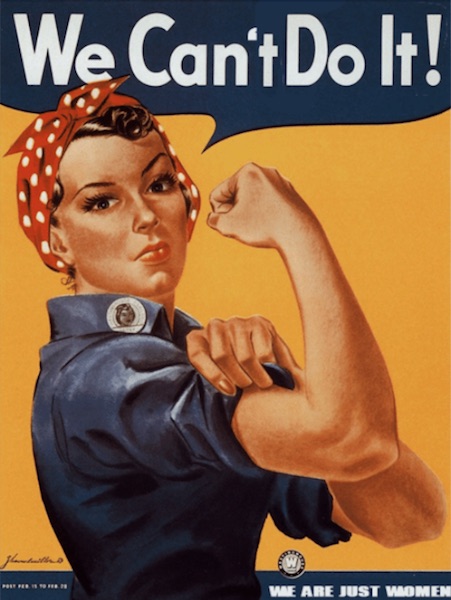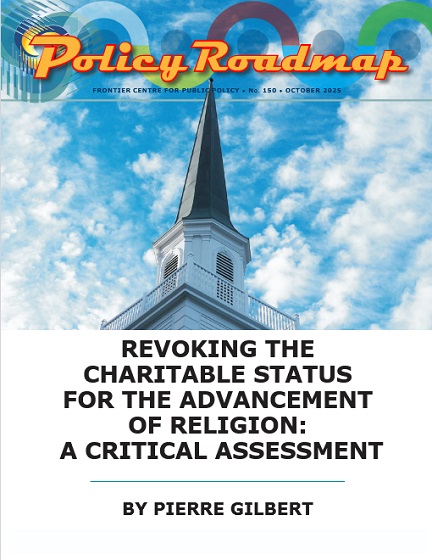Opinion
One of the world’s leading progressives says “I’m out”

This is a compelling read because of the insight but it’s even more remarkable considering the author. Michael Schellenberger not only founded and lead “Environmental Progress“, he was an Invited IPCC Reviewer and was named by Time Magazine “Hero of Environment”. Schellenberger is still a leading environmentalist, but his views have changed significantly over the years as he’s become disillusioned with the movement.
Michael Shellenberger is author of the best-selling “Apocalypse Never”
This newsletter was sent out to Michael Schellenberger’s subscribers on Substack

Why I Am Not A Progressive
And Why, From Climate Change to Homelessness, Liberal People Are Giving Up
For all of my adult life I have identified as a progressive. To me, being a progressive meant that I believed in empowerment. In 2002, when I co-founded a labor-environmental coalition to advocate for renewable energy, the symbol we chose to represent us was of Rosie the Riveter, an image of a woman factory worker during World War II flexing her muscle beneath the words, “We Can Do It!”. When President Barack Obama ran for office in 2008, it seemed fitting to me that he chose the slogan, “Yes we can!”
But now, on all the major issues of the day, the message from progressives is “No, you can’t.” No: poor nations like Bangladesh can’t adapt to climate change by becoming rich, insist progressives; rather, rich nations must become poor. No: we can’t prevent the staggering rise of drug deaths in the U.S., from 17,000 in 2000 to 93,000 in 2020, by helping people free themselves from addiction; rather, we must instead provide Safe Injection Sites and Safe Sleeping Sites, in downtown neighborhoods, where homeless addicts can use fentanyl, heroin, and meth safely.
Progressives insist they are offering hope. Many scientists and activists yesterday said that, while we have gone past the point of no return, when it comes to climate change, and that “No one is safe,” we can make the situation less bad by using solar panels, windmills, and electric cars, albeit at a very high cost to the economy. And in California, progressive leaders say that we just need to stick with the progressive agenda of Safe Injection Sites and Safe Sleeping Sites until we can build enough single unit apartments for the state’s 116,000 unsheltered homeless, most of whom are either addicted to hard drugs, suffering from untreated mental illness, or both.
But progressives are talking out of both sides of their mouth. Yesterday I debated a British climate scientist named Richard Betts on television. After I pointed out that he and his colleagues had contributed to one out of four British children having nightmares about climate change he insisted that he was all for optimism and that he agreed with me about nuclear power. But just hours earlier he had told the Guardian that we were “hopelessly unprepared” for extreme weather events, even though deaths from natural disasters are at an all time low and that, objectively speaking, humankind has never been more prepared than we are today.
And on the drug deaths crisis, the consensus view among Democrats in Sacramento is that “the problem is fundamentally unsolvable,” according to one of the Capitol’s leading lobbyists. Facing a recall that is growing in popularity, Governor Gavin Newsom yesterday tried to demonstrate that he believes he can solve the problem. He came to Berkeley California and cleaned up garbage created by an open air drug scene (“homeless encampment”) underneath a freeway underpass. A reporter for Politicoposted a picture of Newsom who he said was “looking tired, sweaty and dirty.” But a commenter noted that the video was shot at 12:12 pm and by 12:25 pm Newsom was holding a press conference. The governor hadn’t even bothered changing out of his Hush Puppies into work boots. People close to the governor say that it is Newsom himself who believes homelessness is a problem that cannot be solved.
The reason progressives believe that “No one is safe,” when it comes to climate change, and that the drug death “homelessness” crisis is unsolvable, is because they are in the grip of a victim ideology characterized by safetyism, learned helplessness, and disempowerment. This isn’t really that new. Since the 1960s, the New Left has argued that we can’t solve any of our major problems until we overthrow our racist, sexist, and capitalistic system. But for most of my life, up through the election of Obama, there was still a New Deal, “Yes we can!,” and “We can do it!” optimism that sat side-by-side with the New Left’s fundamentally disempowering critique of the system.
That’s all gone. On climate change, drug deaths, and cultural issues like racism, the message from progressives is that we are doomed unless we dismantle the institutions responsible for our oppressive, racist system. Those of us in Generation X who were raised to believe that racism was something we could overcome have been told in no uncertain terms that we were wrong. Racism is baked into our cultural DNA. Even apparently positive progressive proposals are aimed at fundamentally dismantling institutions. The Democrats’ $1 trillion infrastructure bill, supported by many Republicans, and their $3.5 trillion budget proposal, contain measures that would finance the continuing degradation of our electrical grids by increasing reliance on unreliable, weather-dependent renewables, and establish racial incentives for industries including trucking, where there is already a shortage of drivers in large measure because not enough of them can pass drug tests. And does anyone really believe that, if those bills pass, progressives will abandon their dark vision of the future and return to Rosie the Riveter?
Meanwhile, at the state and local level, progressive governments faced with worsening racial disparities in education and crime, are attempting to “solve” the problem by eliminating academic standards altogether, and advocating selective enforcement of laws based on who is committing them. Such measures are profoundly cynical. Progressives are effectively giving up on addressing racial disparities by ignoring them. But such is the logical outcome of victim ideology, which holds that we can divide the world into victims and oppressors, that victims are morally superior and even spiritual, and no change is possible until the system that produces victims and oppressors is overthrown.
To some extent none of this is new. After World War II, it was progressives, not conservatives, who led the charge to replace mental hospitals with community-based care. After the community-based care system fell apart, and severely mentally ill people ended up living on the street, addicted to drugs and alcohol, progressives blamed Reagan and Republicans for cutting the budget. But progressive California today spends more than any other state, per capita, on mental health, and yet the number of homeless, many of whom are mentally ill and suffering addiction, increased by 31% in California since 2010 even as they declined by 18 percent in the rest of the US.
Also after World War II, it was progressives, not conservatives, who insisted that the world was coming to an end because too many babies were being born, and because of nuclear energy. The “population bomb” meant that too many people would result in resource scarcity which would result in international conflicts and eventually nuclear war. We were helpless to prevent the situation through technological change and instead had to prevent people from having children and rid the world of nuclear weapons and energy. It took the end of the Cold War, and the overwhelming evidence that parents in poor nations chose to have fewer children, as parents in rich nations had before them, where they no longer needed them to work on the farm, for the discourse to finally fade.
But the will-to-apocalypse only grew stronger. After it became clear that the planet was warming, not cooling, as many scientists had previously feared, opportunistic New Left progressives insisted that climate change would be world-ending. There was never much reason to believe this. A major report by the National Academies of Science in 1982 concluded that abundant natural gas, along with nuclear power, would substitute for coal, and prevent temperatures from rising high enough to threaten civilization. But progressives responded by demonizing the authors of the study and insisting that anybody who disagreed that climate change was apocalyptic was secretly on the take from the fossil fuel industry.
Where there have been relatively straightforward fixes to societal problems, progressives have opposed them. Progressives have opposed the expanded use of natural gas and nuclear energy since the 1970s even though it was those two technologies that caused emissions to peak and decline in Germany, Britain and France during that decade. Progressive climate activists over the last 15 years hotly opposed fracking even though it was the main reason emissions in the US declined 22 percent between 2005 and 2020, which is 5 percentage points more than President Obama proposed to reduce them as part of America’s Paris climate agreement.
The same was the case when it came to drug deaths, addiction, and homelessness. People are shocked when I explain to them that the reason California still lacks enough homeless shelters is because progressives have opposed building them. Indeed, it was Governor Newsom, when he was Mayor of San Francisco, who led the charge opposing the construction of sufficient homeless shelters in favor of instead building single unit apartments for anybody who said they wanted one. While there are financial motivations for such a policy, the main motivation was ideological. Newsom and other progressives believe that simply sheltering people is immoral. The good is the enemy of the perfect.
As a result, progressives have created the apocalypse they feared. In California, there are “homeless encampments,” open drug scenes, in the parks, along the highways, and on the sidewalks. But the problem is no longer limited to San Francisco. A few days ago somebody posted a video and photo on Twitter of people in Philadelphia, high on some drug, looking exactly like Hollywood zombies. The obvious solution is to provide people with shelter, require them to use it, and mandate drug and psychiatric treatment, for people who break laws against camping, public drug use, public defecation, and other laws. But progressives insist the better solution is Safe Sleeping Sites and Safe Injection Sites.
Should we be surprised that an ideology that believes American civilization is fundamentally evil has resulted in the breakdown of that civilization? Most American progressives don’t hold such an extreme ideology. Most progressives want police for their neighborhoods. Most progressives want their own children, when suffering mental illness and addiction, to be mandated care. And most progressives want reliable electrical and water management systems for their neighborhoods.
But most progressives are also voting for candidates who are cutting the number of police for poor neighborhoods, insisting that psychiatric and drug treatment be optional, and that trillions be spent making electricity more expensive so we can harmonize with nature through solar panels made by enslaved Muslims in China, and through industrial wind projects built in the habitat of critically endangered whale species.
Does pointing all of this out make me a conservative? There are certainly things I support that many progressives view as conservative, including nuclear power, a ban on public camping, and mandating drug and psychiatric treatment for people who break the law. But other things I support might be fairly viewed as rather liberal, or even progressive, including universal psychiatric care, shelter-for-all, and the reform of police departments with the aims of reducing homicides, police violence, and improving the treatment of people with behavioral health disorders, whether from addiction or mental illness.
And there is a kind of victim ideology on the Right just as there is on the Left. It says that America is too weak and poor, and that our resources are too scarce, to take on our big challenges. On climate change it suggests that nothing of consequence can be done and that all energy sources, from coal to nuclear to solar panels, are of equal or comparable value. On drug deaths and homelessness it argues that parents must simply do a better job raising their children to not be drug addicts, and that we should lock up people, even the mentally ill, for long sentences in prisons and hospitals, with little regard for rehabilitation.
The two grassroots movements I have helped to create around energy and homelessness reject the dystopian victim ideologies of Right and Left. There are progressive and conservative members in both coalitions. But what unites us is our commitment to practical policies that are proven to work in the real world. We advocate for the maintenance and construction of nuclear plants that actually exist, or could soon exist, not futuristic reactors that likely never will. We advocate for Shelter First and Housing Earned, universal psychiatric care, and banning the open dealing of deadly drugs because those are the policies that have worked across the U.S. and around the world, and can be implemented right away.
If I had to find a word to describe the politics I am proposing it would be “heroic,” not liberal, conservative, or even moderate. We need a politics of heroism not a politics of victimhood. Yes, Bangladesh can develop and save itself from sea level rise, just as rich nations have; they are not doomed to hurricanes and flooding. Yes, people addicted to fentanyl and meth can recover from their addictions, with our help, and go on to live fulfilling and rewarding lives; they are not doomed to live in tents for the rest of their shortened lives. And yes, we can create an America where people who disagree on many things can nonetheless find common ground on the very issues that most seem to polarize us, including energy, the environment, crime, and drugs.
On October 12 HarperCollins will publish my second book in two years, San Fransicko, focused on drugs, crime, and homelessnes. It and Apocalypse Never will constitute a comprehensive proposal for saving our civilization from those who would destroy it. What both books have in common is the theme of empowerment. We are not doomed to an apocalyptic future, whether from climate change or homelessness. We can achieve nature, peace, and prosperity for all people because humans are amazing. Our civilization is sacred; we must defend and extend it.
San Fransicko was inspired, in part, by the work of the late psychiatrist, Victor Frankl, who was made famous by a book where he described how he survived the Nazi concentration camps by fixating on a positive vision for his future. During the darkest moments of Covid last year I was struck by how much my mood had improved simply by listening to his 1960s lectures on YouTube. Why, I wondered, had progressives embraced Frankl’s empowering therapy in their personal lives but demonized it in their political lives? Why had progressives, who had done so much to popularize human potential and self-help, claimed that promoting self-help in policies and politics were a form of “blaming the victim?”
Few of my conclusions will surprise anyone, though the agenda, and philosophy, that I am proposing might. It truly is a mix of values, policies, and institutions that one might consider progressive and conservative, not because I set out to make it that way, but because it was that combination that has worked so often in the past. But beyond the policies and values I propose there is a spirit of overcoming, not succumbing; of empowerment, not disempowerment; and of heroism, not victimhood. That spirit comes before, and goes beyond, political ideology and partisan identity. It says, against those who believe that America, and perhaps Western Civilization itself, are doomed: no they’re not. And to those who think we can’t solve big challenges like climate change, drug deaths, and homelessness, it says yes we can.
National
Democracy Watch Renews Push for Independent Prosecutor in SNC-Lavalin Case

Group says Ontario Crown used “clearly incorrect” legal test to shield Trudeau from private prosecution, calls for independent process free of political ties
Democracy Watch has launched a fresh bid to reopen the door to prosecuting former Prime Minister Justin Trudeau over his alleged role in the 2018 SNC-Lavalin affair, accusing Ontario Crown Counsel of using a legally flawed standard to shut down its private prosecution and continuing what it calls “a smelly cover-up” that began under the Trudeau government.
Read the full press release here
In a new letter sent Wednesday to Ontario Attorney General Doug Downey and Randy Schwartz, the province’s Assistant Deputy Attorney General for Criminal Law, the non-partisan watchdog group is again calling for an independent special prosecutor to review evidence that Trudeau obstructed justice and breached public trust by pressuring then–Attorney General Jody Wilson-Raybould to intervene in the SNC-Lavalin prosecution seven years ago.
This latest appeal comes after Ontario’s Director of the Complex Prosecutions Bureau, John Corelli, used his authority in September to halt Democracy Watch’s private prosecution before it reached a preliminary “pre-enquête” hearing. In that letter, Corelli said there was “no reasonable prospect the Crown could prove that Mr. Trudeau acted with the requisite criminal intent.”
Democracy Watch disputes that reasoning, arguing it misstates the law.
“Crown prosecutors stopping this prosecution for a legally incorrect reason, just like the RCMP did in addition to suppressing key evidence, amounts to a smelly cover-up,” said Duff Conacher, the group’s co-founder and legal expert. “It shows clearly that Canada does not have independent, effective anti-corruption law enforcement and, as a result, corruption in the highest public offices across the country is effectively legal.”
The group’s new letter marks the second time it has asked Ontario’s Attorney General to intervene. In its first request in March, Democracy Watch urged Downey to establish a non-partisan selection committee to appoint a special prosecutor. Downey’s office declined that request in May.
Now, the group is reiterating the demand, saying the independent prosecutor should be chosen by a committee composed of people with no party ties, working alongside opposition leaders, to ensure public confidence in the process.
Conacher’s team argues that Corelli’s reasoning — that the Crown cannot prove Trudeau acted with “criminal intent” — applies the wrong legal test. In its filings, Democracy Watch cites the Supreme Court of Canada’s decision in R. v. Beaudry (2007), which clarified that obstruction of justice requires only that an act be done “willfully” to frustrate the course of justice — not that it be done with corrupt or deceitful intent.
“The Supreme Court has already set the threshold,” Conacher said. “Proof of ‘criminal’ intent isn’t required. It’s enough that someone acted willfully to obstruct the process. That’s what the Crown ignored.”
The group also says that the case against Trudeau is unprecedented and cannot be dismissed out of hand without judicial review. It accuses the RCMP of conducting a “negligently weak and incomplete investigation” that left key questions unanswered and accepted the government’s refusal to release Cabinet records from the time.
Democracy Watch’s original filing included testimony and documents obtained from the RCMP after a two-year access battle. It alleges that the Mounties failed to interview key witnesses, including Wilson-Raybould’s chief of staff Jessica Prince and former Liberal minister Jane Philpott, and withheld portions of their answers in documents finally disclosed. The proposed pre-enquête hearing — which Corelli stopped — would have allowed those witnesses to testify under oath and allowed a judge to decide if the evidence was sufficient to proceed.
The group’s case was supported by Wayne Crookes, founder of Integrity B.C., and represented by Jen Danch of Swadron Associates law firm.
Conacher is now urging Ontario’s Attorney General to “do the right thing” and reverse course.
“Canadians can only hope Ontario’s Attorney General will work with opposition party leaders to establish a fully independent committee that will choose a fully independent special prosecutor to review the evidence,” Conacher said.
He also renewed his call for structural reform of Canada’s anti-corruption enforcement, noting that Quebec’s independent anti-corruption police and prosecution units (UPAC) have operated since 2011, while the RCMP remains under the direct control of Cabinet appointees.
“The RCMP lacks independence from the Prime Minister and Cabinet ministers who handpick its leadership,” Conacher said. “They serve at the pleasure of the government, so they are vulnerable to political interference. To ensure integrity, Canada needs a fully independent anti-corruption police force and independent prosecutors.”
Democracy Watch’s campaign underscores a broader concern that the Trudeau-era SNC-Lavalin controversy, which saw Wilson-Raybould’s resignation, Philpott’s exit, and an Ethics Commissioner finding of improper political pressure, has never been subjected to a full criminal review.
For Conacher, the issue is bigger than one case. It’s about restoring the principle that no one, not even a Prime Minister, stands above the law.
Subscribe to The Opposition with Dan Knight .
For the full experience, upgrade your subscription.
Business
Over two thirds of Canadians say Ottawa should reduce size of federal bureaucracy

From the Fraser Institute
By Matthew Lau
From 2015 to 2024, headcount at Natural Resources Canada increased 39 per cent even though employment in Canada’s natural resources sector actually fell one per cent. Similarly, there was 382 per cent headcount growth at the federal department for Women and Gender Equality—obviously far higher than the actual growth in Canada’s female population.
According to a recent poll, there’s widespread support among Canadians for reducing the size of the federal bureaucracy. The support extends across the political spectrum. Among the political right, 82.8 per cent agree to reduce the federal bureaucracy compared to only 5.8 per cent who disagree (with the balance neither agreeing nor disagreeing); among political moderates 68.4 per cent agree and only 10.0 per cent disagree; and among the political left 44.8 per cent agree and 26.3 per cent disagree.
Taken together, “67 per cent agreed the federal bureaucracy should be significantly reduced. Only 12 per cent disagreed.” These results shouldn’t be surprising. The federal bureaucracy is ripe for cuts. From 2015 to 2024, the federal government added more than 110,000 new bureaucrats, a 43 per cent increase, which was nearly triple the rate of population growth.
This bureaucratic expansion was totally unjustified. From 2015 to 2024, headcount at Natural Resources Canada increased 39 per cent even though employment in Canada’s natural resources sector actually fell one per cent. Similarly, there was 382 per cent headcount growth at the federal department for Women and Gender Equality—obviously far higher than the actual growth in Canada’s female population. And there are many similar examples.
While in 2025 the number of federal public service jobs fell by three per cent, the cost of the federal bureaucracy actually increased as the number of fulltime equivalents, which accounts for whether those jobs were fulltime or part-time, went up. With the tax burden created by the federal bureaucracy rising so significantly in the past decade, it’s no wonder Canadians overwhelmingly support its reduction.
Another interesting poll result: “While 42 per cent of those surveyed supported the government using artificial intelligence tools to resolve bottlenecks in service delivery, 32 per cent opposed it, with 25 per cent on the fence.” The authors of the poll say the “plurality in favour is surprising, given the novelty of the technology.”
Yet if 67 per cent of Canadians agree with significantly shrinking the federal bureaucracy, then solid support for using AI to increasing efficiency should not be too surprising, even if the technology is relatively new. Separate research finds 58 per cent of Canadian workers say they use AI tools provided by their workplace, and although many of them do not necessarily use AI regularly, of those who report using AI the majority say it improves their productivity.
In fact, there’s massive potential for the government to leverage AI to increase efficiency and control labour expenses. According to a recent study by a think-tank at Toronto Metropolitan University (formerly known as Ryerson), while the federal public service and the overall Canadian workforce are similar in terms of the percentage of roles that could be made more productive by AI, federal employees were twice as likely (58 per cent versus 29 per cent) to have jobs “comprised of tasks that are more likely to be substituted or replaced” by AI.
The opportunity to improve public service efficiency and deliver massive savings to taxpayers is clearly there. However, whether the Carney government will take advantage of this opportunity is questionable. Unlike private businesses, which must continuously innovate and improve operational efficiency to compete in a free market, federal bureaucracies face no competition. As a result, there’s little pressure or incentive to reduce costs and increase efficiency, whether through AI or other process or organizational improvements.
In its upcoming budget and beyond, it would be a shame if the federal government does not, through AI or other changes, restrain the cost of its workforce. Taxpayers deserve, and clearly demand, a break from this ever-increasing burden.
-

 Alberta2 days ago
Alberta2 days agoFact, fiction, and the pipeline that’s paying Canada’s rent
-

 Energy1 day ago
Energy1 day agoIndigenous Communities Support Pipelines, Why No One Talks About That
-

 Business2 days ago
Business2 days agoFinance Titans May Have Found Trojan Horse For ‘Climate Mandates’
-

 Alberta1 day ago
Alberta1 day agoOil Sands are the Costco of world energy – dependable and you know exactly where to find it
-

 International2 days ago
International2 days agoSigned and sealed: Peace in the Middle East
-

 Business1 day ago
Business1 day agoFinance Committee Recommendation To Revoke Charitable Status For Religion Short Sighted And Destructive
-

 International1 day ago
International1 day agoNumber of young people identifying as ‘transgender’ declines sharply: report
-

 Alberta1 day ago
Alberta1 day agoThe Technical Pitfalls and Political Perils of “Decarbonized” Oil









